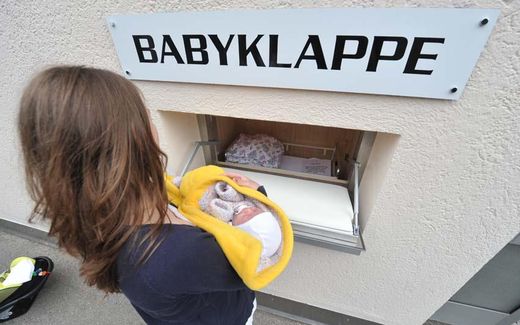Secularisation has not won the battle since believers are still happier people
26-12-2024
Opinion
Olof Edsinger

Romanian believers on Palm Sunday. Photo AFP, Daniel Mihailescu
Opinion
When churchgoers end up in a hospital, they have better chances of survival than non-believers. That’s what research tells us. Still, some scholars see religion as harmful. According to Olof Edsinger, there is enough reason to challenge that vision.
Last year, the marketing company Ipsos presented a major study on religious beliefs, with 26 different countries surveyed. The study confirms the picture that is well established these days: the secularisation prophets of the 20th century were wrong: religion is not experiencing the decline that was previously predicted.
On the contrary, in large parts of Europe, Generation Z is more inclined to visit churches, mosques, synagogues, and temples than their parents’ generation.
But the survey also reveals ambivalence. In my home country, Sweden, for instance, half of all respondents answered positively to Ipsos’ questions about the effects of religion on the individual. But at the same time, 70 per cent said that religion causes more harm than good in the world at large. Only 22 per cent said they agreed with the statement that people with religious faith are better citizens than non-believers.
Robbery
This is an interesting finding. After all, much research shows that religion contributes positively to the community. Those results are particularly clear in the cases of Christian and Jewish communities.
For example, the world-renowned professor of sociology Rodney Stark has pointed to the following research findings from his American context:
- The more worshippers in the population, the lower the average problems of burglary, theft, robbery, assault, rape, and murder.
- Regular worshippers live, on average, 7.6 years longer (!) than non-religious people. They also rate themselves higher in terms of life satisfaction and have fewer problems with depression and neuroses than the average American.
- Among regular churchgoers, more people get married, fewer people get divorced, and more people describe their marriages as “very happy” compared to the population at large.
Mortality
Similar results have been found also in Europe. A recent Danish study found that religiously active men needed one-third fewer hospital visits than their secular peers.
Equally remarkable, when the Danish research team examined death rates, it found that individuals who participated in a religious organisation had between 30 (men) and 44 (women) per cent lower mortality rates than others who were hospitalised.
All those results are remarkable. However, the main explanation for these figures is not established. Is it due to belonging to a healthy human community or living a healthier lifestyle (with a lower-than-average use of alcohol and tobacco)? Previous European studies have shown similar results, including the fact that people who regularly attended religious gatherings were less likely to get cancer.
Now, these phenomena may not be what people have in mind when they say that religion causes more harm than good in the world at large. Instead, it has to do with things like religiously motivated wars and violence. However, as the Swedish historian of religion Mattias Gardell has demonstrated, more than 90 per cent of all armed conflicts in the world between 1945 and 2001 had something other than religion as their primary driver.
To this, we can add the findings of the American professor of sociology and political science Robert Woodberry, who, in an award-winning article concluded that as much as half of the variation in democracy in regions like Africa, Asia, Latin America and Oceania can be traced back to the historical presence of Protestant Christian missionaries.
Gut feeling
With all these facts taken together, it seems clear that the gut feeling of many Europeans –and indeed many Swedes– is pointing them in the wrong direction. It is far from certain that the world would be a better place without religion.
Olof Edsinger is the General Secretary of the Swedish Evangelical Alliance (SEA).
Related Articles








